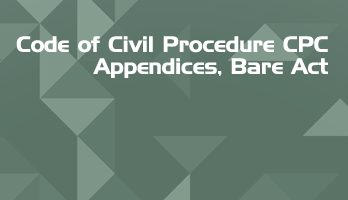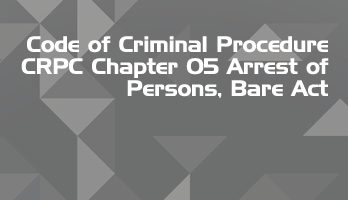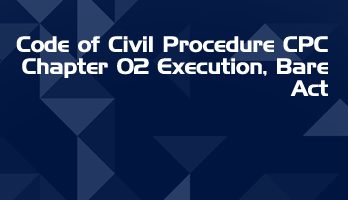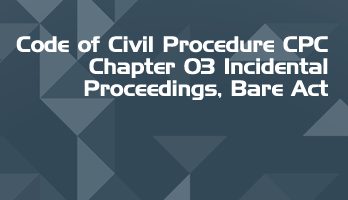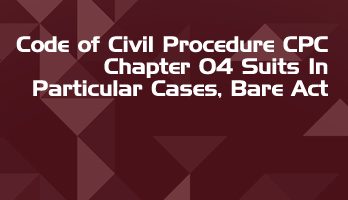A 'Bare act' is the actual legislation passed by the Parliament of India. Generally, an act sets out the high level legal and policy principles applicable to the subject matter of the law.
Most acts are accompanied by 'subsidiary legislation' such as rules, regulations, notifications and orders; which address the actual implementation detail of the act.
Free Full Course Available on LawMint's YouTube Channel
How to Land Your Dream LLB Internship in a Top Law Firm
- Part 1 - Introduction
- Part 2 - Internship Planning
- Part 3 - Internship Research
- Part 4 - Building Your Profile
- Part 5 - The Email
- Part 6 - The Resume
- Part 7 - The Cover Letter
- Part 8 - The Interview
- Part 9 - Self Development
Practical and comprehensive course, with real examples and step-by-step analysis of the complete internship application process. Check out LawMint's YouTube channel now!
Indian Penal Code, 1860
Chapter IXA – Of Offences Relating to Elections
Section 171A – Candidate, Electoral right – defined
For the purposes of this Chapter:
- – candidate – means a person who has been nominated as a candidate at any election;
- – electoral right – means the right of a person to stand, or not to stand as, or to withdraw from being, a candidate or to vote or refrain from voting at an election.
Section 171B – Bribery
- Whoever –
- gives a gratification to any person with the object of inducing him or any other person to exercise any electoral right or of rewarding any person for having exercised any such right; or
- accepts either for himself or for any other person any gratification as a reward for exercising any such right or for inducing or attempting to induce any other person to exercise any such right, commits the offence of bribery; Provided that a declaration of public policy or a promise of public action shall not be an offence under this section.
- A person who offers, or agrees to give, or offers or attempts to procure, a gratification shall be deemed to give a gratification.
- A person who obtains or agrees to accept or attempts to obtain a gratification shall be deemed to accept a gratification, and a person who accepts a gratification as a motive for doing what he does not intend to do, or as a reward for doing what he has not done, shall be deemed to have accepted the gratification as a reward.
Section 171C – Undue influence at elections
- Whoever voluntarily interferes or attempts to interfere with the free exercise of any electoral right commits the offence of undue influence at an election.
- Without prejudice to the generality of the provisions of sub – section (1), whoever
- threatens any candidate or voter, or any person in whom a candidate or voter is interested, with injury of any kind, or
- induces or attempts to induce a candidate or voter to believe that he or any person in whom he is interested will become or will be rendered an object of Divine displeasure or of spiritual censure, shall be deemed to interfere with the free exercise of the electoral right of such candidate or voter, within the meaning of sub – section (1).
- A declaration of public policy or a promise of public action, or the mere exercise or a legal right without intent to interfere with an electoral right, shall not be deemed to be interference within the meaning of this section.
Section 171D – Personation at elections
Whoever at an election applies for a voting paper on votes in the name of any other person, whether living or dead, or in a fictitious name, or who having voted once at such election applies at the same election for a voting paper in his own name, and whoever abets, procures or attempts to procure the voting by any person in any such way, commits the offence of personation at an election.
Section 171E – Punishment for bribery
Whoever commits the offence of bribery shall be punished with imprisonment of either description for a term which may extend to one year, or with fine, or with both;
Provided that bribery by treating shall be punished with fine only.
Explanations
- – Treating – means that form of bribery where the gratification consists in food, drink, entertainment, or provision.
Section 171F – Punishment for undue influence or personation at an election
Whoever commits the offence of undue influence or personation at an election shall be punished with imprisonment of either description for a term which may extend to one year or with fine, or with both.
Section 171G – False statement in connection with an election
Whoever with intent to affect the result of an election makes or publishes any statement purporting to be a statement of fact which is false and which he either knows or believes to be false or does not believe to be true, in relation to the personal character or conduct of any candidate shall be punished with fine.
Section 171H – Illegal payments in connection with an election
Whoever without the general or special authority in writing of a candidate incurs or authorizes expenses on account of the holding of any public meeting, or upon any advertisement, circular or publication, or in any other way whatsoever for the purpose of promoting or procuring the election of such candidate, shall be punished with fine which may extend to five hundred rupees;
Provided that if any person having incurred any such expenses not exceeding the amount of ten rupees without authority obtains within ten days from the date on which such expenses were incurred the approval in writing of the candidate, he shall be deemed to have incurred such expenses with the authority of the candidate.
Section 171 – I Failure to keep election accounts
Whoever being required by any law for the time being in force or any rule having the force of law to keep accounts of expenses incurred at or in connection with an election fails to keep such accounts shall be punished with fine which may extend to five hundred rupees.
Important Central Acts in Regional Languages
Legislative department website also features regional language versions of several important Central Acts.
Free Full Course Available on LawMint's YouTube Channel
How to Land Your Dream LLB Internship in a Top Law Firm
- Part 1 - Introduction
- Part 2 - Internship Planning
- Part 3 - Internship Research
- Part 4 - Building Your Profile
- Part 5 - The Email
- Part 6 - The Resume
- Part 7 - The Cover Letter
- Part 8 - The Interview
- Part 9 - Self Development
Practical and comprehensive course, with real examples and step-by-step analysis of the complete internship application process. Check out LawMint's YouTube channel now!





